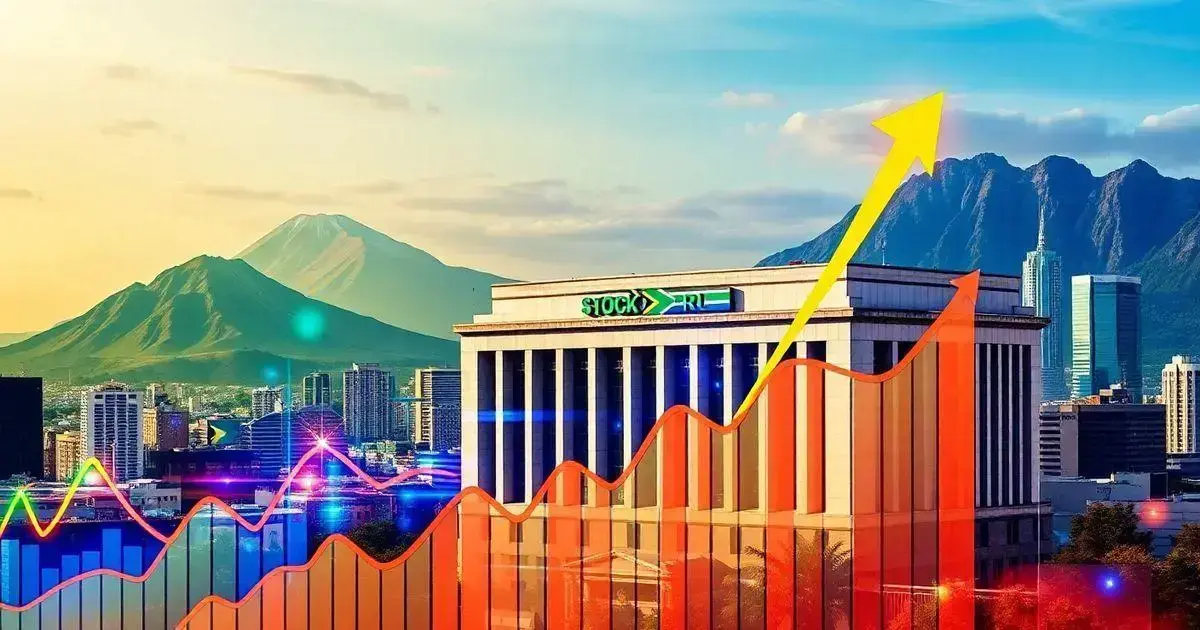The South Africa Stock Market plays a pivotal role in shaping the country’s economy and offers vast opportunities for investors. Staying informed about market movements is essential for making sound financial decisions and maximizing returns.
With stock prices influenced by global trends, economic policies, and industry performance, understanding these dynamics can give you a competitive edge. Regular updates ensure you’re prepared to adapt and capitalize on emerging opportunities.
Explore the latest insights and strategies to navigate the South Africa Stock Market effectively—continue reading to stay informed and seize your next big investment opportunity!
Overview of the South Africa Stock Market
The South Africa stock market is a vital component of the nation’s economy, showcasing the financial health and wealth of the country. It features a range of companies, spanning various industries, and represents a significant avenue for investment. Understanding this market entails looking at the JSE (Johannesburg Stock Exchange), which is the largest stock exchange in Africa.
The JSE serves as a platform for buying and selling shares, bonds, and other securities, providing transparency and liquidity to investors.
Investors often assess several key indicators, including market capitalisation, which reflects the total value of all shares listed on the exchange. Other vital metrics include trading volumes, which indicate the activity levels of stock trades, and index movements, such as the FTSE/JSE All Share Index, which serves as a benchmark for assessing overall market performance.
Moreover, market participants range from individual investors to institutional wealth funds, each playing a significant role in the trading process. Understanding the trends and factors influencing stock prices, such as political stability, economic policy, and global market conditions, is essential for making informed investment decisions. Insights into these elements can guide you in navigating this lively market.
Key Players in the Market

The South Africa stock market is shaped by several key players who significantly influence its dynamics. These include institutional investors, retail investors, brokerage firms, and market makers, each playing a unique role in the market ecosystem.
Institutional investors, such as pension funds and mutual funds, manage substantial amounts of capital and make large-scale investments in listed companies. Their decisions are often backed by extensive research and analytics, making them pivotal in shaping market trends and influencing overall market sentiment.
Retail investors, on the other hand, consist of individual traders who deal in smaller quantities. While their impact on broader market movements might be limited individually, their collective actions can notably affect stock prices. Observing their behaviors and strategies offers valuable insights into market sentiment and short-term trends.
Brokerage firms act as intermediaries, facilitating trades between buyers and sellers while ensuring market liquidity. They provide clients with essential tools such as research, advice, and trading platforms, thereby influencing investment decisions and enhancing market efficiency.
Lastly, market makers play a crucial role by providing liquidity and maintaining market stability. By being ready to buy or sell stocks at any given moment, they help set prices and stabilize trading activities.
By understanding the roles and interactions of these players, investors can navigate the South Africa stock market more effectively, gaining insights into its structure and dynamics.
Recent Trends Affecting Stock Prices
Recent trends in the South Africa stock market have exhibited significant volatility, driven by a combination of local and global factors. These trends highlight the dynamic nature of the market and its sensitivity to various influences.
One prominent trend is the impact of global economic conditions. Changes in international markets, such as fluctuations in commodity prices, directly affect South African companies reliant on exports. For example, shifts in the prices of gold and platinum, two key exports, often result in noticeable changes in the stock values of mining companies.
Interest rates also play a critical role. Adjustments by the South African Reserve Bank can influence borrowing costs, affecting business profitability and stock prices. While lower interest rates generally promote economic growth, they can also raise inflation concerns, adding complexity to the market’s behavior.
Political stability remains another influential factor. Events like elections or policy changes can create uncertainty, leading investors to act cautiously. This hesitance often contributes to stock price fluctuations within the South Africa stock market, as market sentiment reacts to evolving political landscapes.
Lastly, technological advancements and changing consumer preferences continue to reshape industries. Companies that embrace innovation tend to see positive impacts on their stock values, whereas those slow to adapt may experience declines. Staying informed about these trends equips investors to navigate the market effectively and capitalize on emerging opportunities.
Impact of Global Events on South Africa’s Market

The impact of global events on the economy is significant and multifaceted.
For instance, geopolitical conflicts can drive fluctuations in stock prices.
Similarly, economic sanctions can lead to changes in trade patterns affecting South Africa.
Moreover, interest rate changes can shift capital flows and affect the value of the rand.
Additionally, pandemics can disrupt supply chains and alter consumer behaviour.
As a result, investors must remain vigilant in navigating these complexities.
Investment Strategies for Success
Investment strategies for success in the South Africa stock market require careful planning and awareness. Diversification is essential. By spreading investments across various sectors, such as technology, resources, and consumer goods, investors can mitigate risks.
Another key approach is conducting thorough research. Understanding the financial health of companies and market trends enables better decision-making. This includes analyzing financial statements, industry reports, and economic indicators to identify potential growth areas.
Investors should also consider adopting a long-term perspective. The stock market can be volatile in the short term, but a focus on long-term growth can yield positive results. This means being patient and allowing investments time to mature.
Additionally, it is wise to keep an eye on global events as they can significantly impact local markets. Awareness of political changes, economic sanctions, or shifts in consumer behaviour can help in making timely and informed investment choices.
Lastly, leveraging professional advice from financial advisors can enhance investment strategies. These experts can provide personalized insights and guidance tailored to individual financial goals and risk tolerance.
Future Outlook for Investors

The future outlook for investors in the South Africa stock market appears to be both challenging and filled with opportunities. Economic growth is a primary factor. Predictions suggest that as the economy stabilises, stock prices may rise, creating a favourable environment for investing.
Additionally, technological advancements are reshaping industries, providing new avenues for investment. Companies that embrace innovation are likely to attract investor interest and see growth in their stock values.
It is also essential to monitor government policies and regulatory changes, as these can significantly impact investment conditions. Stable and supportive policies may create a more attractive investment climate.
Emerging sectors, such as renewable energy and technology, present exciting prospects for investors. As South Africa moves towards more sustainable solutions, companies in these areas may offer excellent returns.
Lastly, being informed about global market trends and economic indicators is crucial. These trends can impact local markets, and understanding them helps investors anticipate changes and make proactive decisions.
FAQ – Frequently Asked Questions about the South Africa Stock Market
What is the South Africa stock market?
The South Africa stock market is a marketplace for buying and selling shares of publicly traded companies, primarily located on the Johannesburg Stock Exchange (JSE).
How can I start investing in the stock market?
To start investing, open a brokerage account, research potential stocks, and decide on an investment strategy that suits your financial goals.
What factors influence stock prices in South Africa?
Stock prices can be influenced by economic conditions, political stability, global market trends, and company performance.
Is it wise to diversify my investments?
Yes, diversification helps to spread risk across different sectors and can lead to more stable investment returns.
What role do government policies play in the stock market?
Government policies can impact market conditions by affecting economic stability, investor confidence, and regulatory frameworks.
How can I stay informed about market trends?
Stay informed by following financial news, subscribing to economic reports, and engaging with financial analysts or advisors.
Check out our article on Cost-Cutting Ideas to discover practical strategies for saving money and optimizing your budget.
